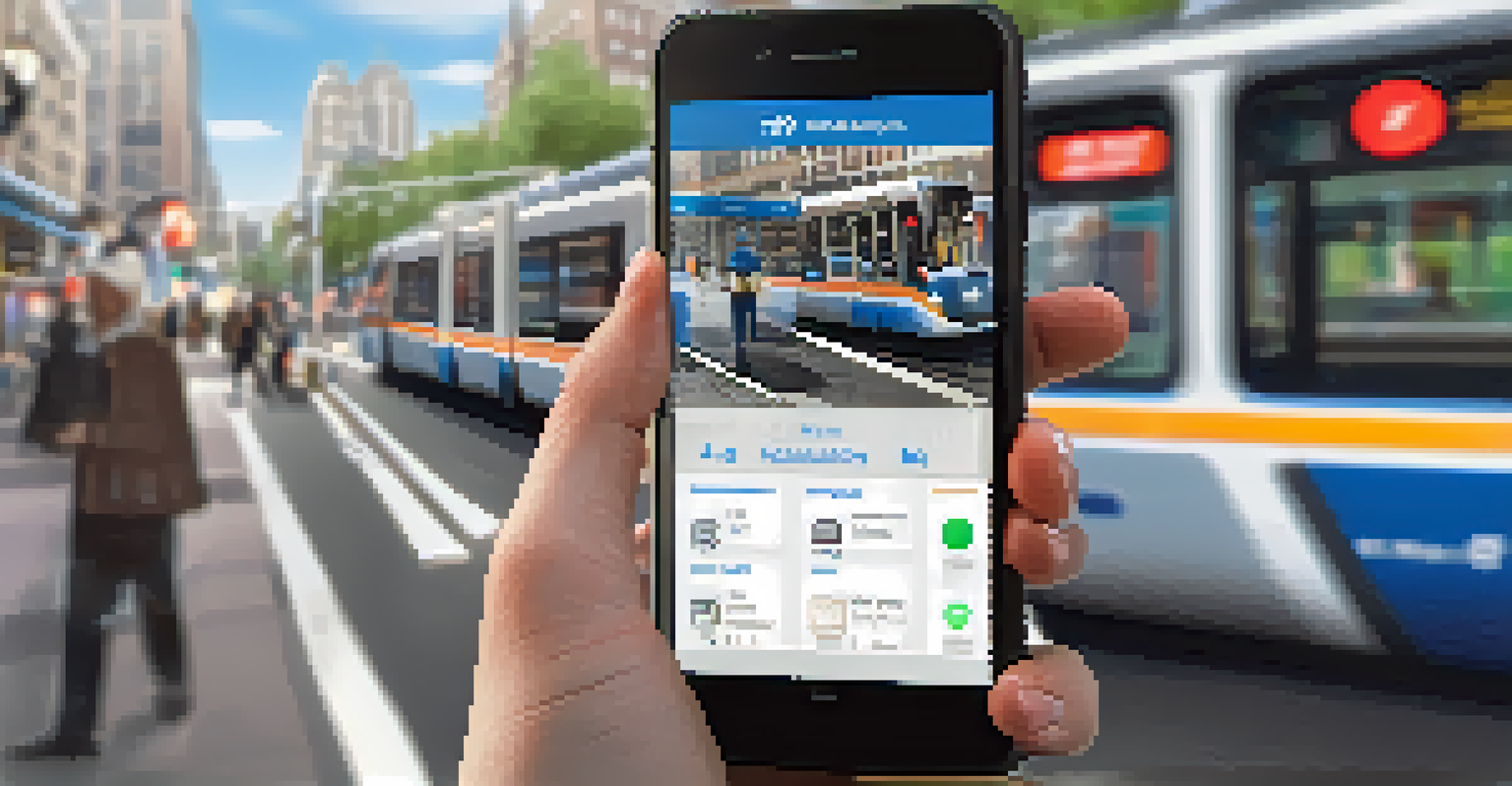Packing Tips for Travelers with Mobility Challenges

Understanding Your Mobility Needs Before Packing
Before you even think about packing, it's crucial to understand your specific mobility needs. This could mean considering whether you use a wheelchair, walker, or any other assistive devices. Knowing what you require will help you determine what to bring, ensuring you're comfortable throughout your journey.
Traveling – it leaves you speechless, then turns you into a storyteller.
Take inventory of your mobility aids and any additional equipment you might need, such as cushions for added comfort or portable ramps. Think about your destination too; will there be accessibility options available? This will guide your packing choices and help you avoid any last-minute surprises.
It’s also a good idea to consult with your healthcare provider before traveling. They can offer advice on what to bring and any precautions you should take, making your trip smoother and more enjoyable.
Choosing the Right Luggage for Easy Transport
Selecting the right luggage can significantly impact your travel experience, especially when mobility is a concern. Opt for lightweight, easy-to-maneuver suitcases or backpacks with wheels. This will make navigating through airports and hotels much easier.

Consider luggage with compartments that allow for organized packing, so you can quickly access what you need without hassle. Having a bag that opens wide can also help you find items without digging through everything, which is particularly helpful if you need supplies on the go.
Assess Mobility Needs Before Packing
Understanding your specific mobility requirements ensures you pack the right aids and accessories for a comfortable journey.
Additionally, if you’re traveling with a companion, discuss how you’ll share the load. This can alleviate some of the physical demands and make your packing strategy more efficient.
Packing Mobility Aids and Accessories Efficiently
When packing mobility aids, it’s essential to ensure they’re secure and easily accessible. If you use a wheelchair or scooter, check if they can be disassembled for easier transport. Make sure all parts are clearly marked and packed in a way that minimizes damage during transit.
The journey of a thousand miles begins with one step.
Don’t forget to include any necessary accessories that enhance your mobility. This could be items like seat cushions, storage bags for personal items, or even a portable charger for your mobility devices. These little additions can make a world of difference while traveling.
Lastly, consider labeling your mobility aids and accessories. This can help you quickly identify your items at baggage claim and ease any concerns about loss or damage.
Clothing Choices for Comfort and Accessibility
When packing clothes, prioritize comfort and ease of wear. Choose breathable fabrics and loose-fitting garments that won’t restrict movement. This is especially important for those who may spend extended periods seated or in transit.
Also, think about layering. Weather can be unpredictable, and layers allow you to adjust your clothing without hassle. Consider packing items that are easy to put on and take off, especially if you’ll be relying on assistance.
Choose Luggage for Easy Transport
Selecting lightweight and organized luggage can significantly enhance your travel experience, especially when mobility is a concern.
Lastly, don’t forget about accessibility. If you wear braces or use assistive devices, select clothing that accommodates these needs without compromising your style.
Essential Travel Documents and Medications
Being organized with your travel documents can save you stress during your trip. Keep your passport, ID, and any necessary medical documents together in a waterproof pouch. This ensures that you have everything you need when moving through security or checking into hotels.
Make a list of all medications you need, along with their prescriptions, and keep them in their original packaging. This can help in case you need a refill while away or if you encounter any issues at customs.
Additionally, consider packing a small first-aid kit with essentials like pain relievers, band-aids, and any specialized medical supplies you might need. This way, you’ll be prepared for any minor mishaps that can occur while traveling.
Planning for Accessibility at Your Destination
Researching accessibility options at your destination can make a world of difference in your travel experience. Check hotel reviews for information on accessible rooms and amenities. Websites and forums dedicated to travelers with disabilities can provide valuable insights and recommendations.
Look into local transportation options too. Many cities now offer accessible public transport, but it’s wise to verify the details in advance. Knowing your options can help you plan your itinerary without stress.
Plan for Accessibility at Destination
Researching accessibility options at your destination helps tailor your travel experience to meet your mobility needs.
Lastly, don’t hesitate to contact your accommodations or transportation providers ahead of time. They can confirm the availability of accessibility features and help tailor your experience to meet your needs.
Staying Connected with Supportive Technology
In today’s digital world, technology can be a great ally for travelers with mobility challenges. Consider downloading apps that provide accessibility information for your destination. These can offer real-time updates on available services and transportation options.
Additionally, carry a portable charger to keep your devices powered throughout your travels. Staying connected can help you navigate unfamiliar places and communicate with others if needed.

Don’t forget to share your travel plans with someone you trust. This provides an extra layer of safety and ensures you have support available, should you need it.
Preparing for Unexpected Situations While Traveling
No matter how well you plan, unexpected situations can arise while traveling. It’s wise to have a backup plan, whether it’s a list of nearby medical facilities or a contact person who can assist you in an emergency. This preparation can alleviate anxiety and help you focus on enjoying your trip.
Make sure your phone is equipped with important contacts and emergency numbers. This could include family members, local emergency services, or even your healthcare provider. Having this information at your fingertips can provide peace of mind.
Lastly, keep a positive attitude. Embracing flexibility and being open to changes can turn potential frustrations into opportunities for adventure and new experiences.